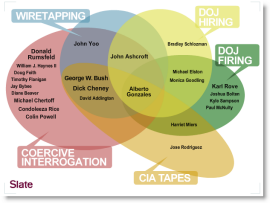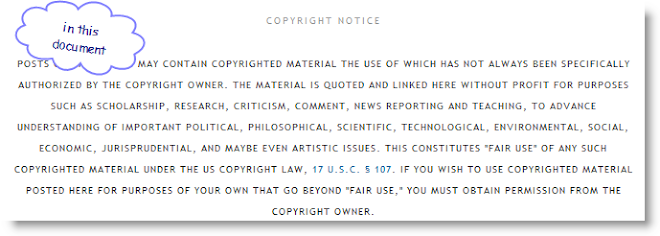By Andrew J. Bacevich
Sunday, January 20, 2008; B01
The war may be off the front pages, but Iraq is broken beyond repair, and we still own it.As the fifth anniversary of Operation Iraqi Freedom nears, the fabulists are again trying to weave their own version of the war. The latest myth is that the "surge" is working.
In President Bush's pithy formulation, the United States is now "kicking ass" in Iraq. The gallant Gen. David Petraeus, having been given the right tools, has performed miracles, redeeming a situation that once appeared hopeless. Sen. John McCain has gone so far as to declare that "we are winning in Iraq." While few others express themselves quite so categorically, McCain's remark captures the essence of the emerging story line: Events have (yet again) reached a turning point. There, at the far end of the tunnel, light flickers. Despite the hand-wringing of the defeatists and naysayers, victory beckons.
From the hallowed halls of the American Enterprise Institute waft facile assurances that all will come out well. AEI's Reuel Marc Gerecht assures us that the moment to acknowledge "democracy's success in Iraq" has arrived. To his colleague Michael Ledeen, the explanation for the turnaround couldn't be clearer: "We were the stronger horse, and the Iraqis recognized it." In an essay entitled "Mission Accomplished" that is being touted by the AEI crowd, Bartle Bull, the foreign editor of the British magazine Prospect, instructs us that "Iraq's biggest questions have been resolved." Violence there "has ceased being political." As a result, whatever mayhem still lingers is "no longer nearly as important as it was." Meanwhile, Frederick W. Kagan, an AEI resident scholar and the arch-advocate of the surge, announces that the "credibility of the prophets of doom" has reached "a low ebb."
Presumably Kagan and his comrades would have us believe that recent events vindicate the prophets who in 2002-03 were promoting preventive war as a key instrument of U.S. policy. By shifting the conversation to tactics, they seek to divert attention from flagrant failures of basic strategy. Yet what exactly has the surge wrought? In substantive terms, the answer is: not much.
As the violence in Baghdad and Anbar province abates, the political and economic dysfunction enveloping Iraq has become all the more apparent. The recent agreement to rehabilitate some former Baathists notwithstanding, signs of lasting Sunni-Shiite reconciliation are scant. The United States has acquired a ramshackle, ungovernable and unresponsive dependency that is incapable of securing its own borders or managing its own affairs. More than three years after then-national security adviser Condoleezza Rice handed President Bush a note announcing that "Iraq is sovereign," that sovereignty remains a fiction.
A nation-building project launched in the confident expectation that the United States would repeat in Iraq the successes it had achieved in Germany and Japan after 1945 instead compares unfavorably with the U.S. response to Hurricane Katrina. Even today, Iraqi electrical generation meets barely half the daily national requirements. Baghdad households now receive power an average of 12 hours each day -- six hours fewer than when Saddam Hussein ruled. Oil production still has not returned to pre-invasion levels. Reports of widespread fraud, waste and sheer ineptitude in the administration of U.S. aid have become so commonplace that they barely last a news cycle. (Recall, for example, the 110,000 AK-47s, 80,000 pistols, 135,000 items of body armor and 115,000 helmets intended for Iraqi security forces that, according to the Government Accountability Office, the Pentagon cannot account for.) U.S. officials repeatedly complain, to little avail, about the paralyzing squabbling inside the Iraqi parliament and the rampant corruption within Iraqi ministries. If a primary function of government is to provide services, then the government of Iraq can hardly be said to exist.
Moreover, recent evidence suggests that the United States is tacitly abandoning its efforts to create a truly functional government in Baghdad. By offering arms and bribes to Sunni insurgents -- an initiative that has been far more important to the temporary reduction in the level of violence than the influx of additional American troops -- U.S. forces have affirmed the fundamental irrelevance of the political apparatus bunkered inside the Green Zone.
Rather than fostering political reconciliation, accommodating Sunni tribal leaders ratifies the ethnic cleansing that resulted from the civil war touched off by the February 2006 bombing of the Golden Mosque in Samarra, a Shiite shrine. That conflict has shredded the fragile connective tissue linking the various elements of Iraqi society; the deals being cut with insurgent factions serve only to ratify that dismal outcome. First Sgt. Richard Meiers of the Army's 3rd Infantry Division got it exactly right: "We're paying them not to blow us up. It looks good right now, but what happens when the money stops?"
In short, the surge has done nothing to overturn former secretary of state Colin Powell's now-famous "Pottery Barn" rule: Iraq is irretrievably broken, and we own it. To say that any amount of "kicking ass" will make Iraq whole once again is pure fantasy. The U.S. dilemma remains unchanged: continue to pour lives and money into Iraq with no end in sight, or cut our losses and deal with the consequences of failure.
more ...






